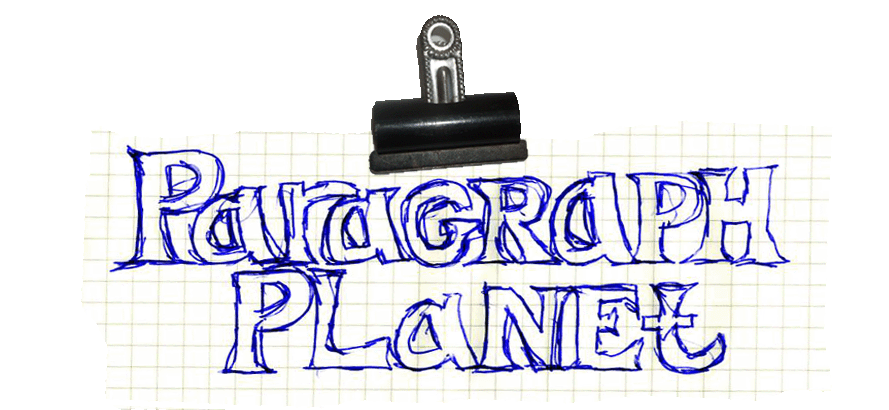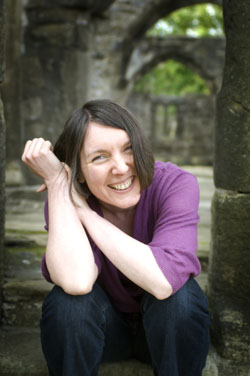









on


RACHEL CONNOR
 'Sisterwives' is the story of two women - Amarantha and Rebecca - who live in an isolated, fundamentalist community, and who are married to the same man. Moving between characters' voices, and shifting between urban and rural settings, it also explores the journey of the whole community: why they left behind the city and why polygamy is at the core of their belief system. It's an exploration of desire, and questions whether it's possible for one individual to fulfil all our needs - sexual, spiritual, emotional - all of the time. 'Sisterwives' also looks at the pros and cons - especially for the female characters - of living in a non-nuclear unit. While 'Sisterwives' occupies a fictional space (the community is an imaginary one), it borrows aspects from the Pennsylvania Amish, from fundamentalist Mormons and from Quakers, as well as drawing on my own experience as a visitor for many years to an intentional community and housing co-op in rural Scotland
What is your favourite stage of the writing process?
'Sisterwives' is the story of two women - Amarantha and Rebecca - who live in an isolated, fundamentalist community, and who are married to the same man. Moving between characters' voices, and shifting between urban and rural settings, it also explores the journey of the whole community: why they left behind the city and why polygamy is at the core of their belief system. It's an exploration of desire, and questions whether it's possible for one individual to fulfil all our needs - sexual, spiritual, emotional - all of the time. 'Sisterwives' also looks at the pros and cons - especially for the female characters - of living in a non-nuclear unit. While 'Sisterwives' occupies a fictional space (the community is an imaginary one), it borrows aspects from the Pennsylvania Amish, from fundamentalist Mormons and from Quakers, as well as drawing on my own experience as a visitor for many years to an intentional community and housing co-op in rural Scotland
What is your favourite stage of the writing process?I love the crafting that comes with re-drafting and editing, that process of polishing the words until they shine. Writing the first draft is such a painful thing for me; I hate the writing, hate the shape the writing takes, hate that the words don't feel good enough. It's taken years to push through that stage effectively and suppress that horrible inner critic, trusting that something good can eventually come out of it. I've begun to see that the first draft is nothing more than a great fat lump of clay, ready to be shaped and not yet resembling what it will become. Which authors have inspired you?
Probably my most long standing influence is Virginia Woolf. I read 'Mrs Dalloway' at age sixteen (with the help of an inspiring and inspired teacher) and it has been my 'desert island book' ever since. I think I'm most interested as a writer in the inner consciousness and psyche of the character - I'm sure that comes directly from Woolf. I've also been inspired over the years by the sensuality of Michele Roberts; the astonishing breadth of Margaret Atwood; Ali Smith's linguistic virtuosity. But there are so many more: Anne Michaels, David Mitchell, Alice Munro...I could go on and on. I developed Paragraph Planet because my favourite stage of writing is editing and reducing the word count to improve a piece. How do your successive drafts change?
I tend to start with the bigger picture first. With 'Sisterwives', I threw out a lot of unecessary scenes as part of the editing process. I try not to get too attached to any of these scenes. Nothing is ever wasted, because in the course of writing them, I've got to know the character better or have brought to life an incident which might be lurking in the backstory but significant nevertheless. I condense each scene onto a postcard, then lay the cards on the floor of my writing space. Sometimes I shuffle the order but always it helps me get to grips with the whole novel and get a sense of it in a visual way. Then if something is missing or lacking or extraneous, it becomes quite obvious. It takes several drafts before I get to that last stage of editing, the line-by-line level. I love that bit: gutting each sentence for unecessary words to get to the heart of what I'm trying to say. How important is digital technology to a writer?
First of all, I find it great fun. As writers in this day and age we simply have to embrace it: the myth of the writer working in splendid isolation in some garret is no longer relevant. But digital stuff isn't just about 'marketing' in a cut throat or cynical way. Digital technology is wonderful for finding useful resources, for hooking up with other writers, for getting and giving support and for making connections on a global scale. I think it works best if you know what you want from it, and use it accordingly - otherwise it can become just another potential means of procrastinating. I've found Twitter, particularly, very useful and have been impressed and touched by the generosity and openness of the online community of readers and writers there. Have you any tips for aspiring writers?
Trust that it can take a long, long time - especially if you're a novelist. Like any indentured apprentice, you need to serve your time and the first novel you write won't necessarily be the one that makes it (it wasn't, in my case). Don't give up. Strive for a balanced lifestyle - some time for contemplation and creativity, some time to be out in the world doing and experiencing things. Read as much as you can in the genre you want to write in. Leave aside drafts of things for as long as you can bear, then come back with a fresh perspective. And finally...develop a good critical 'filter': be humble enough to accept good critical feedback, but have enough confidence to reject things that don't resonate with you. Click here for Rachel's website.
